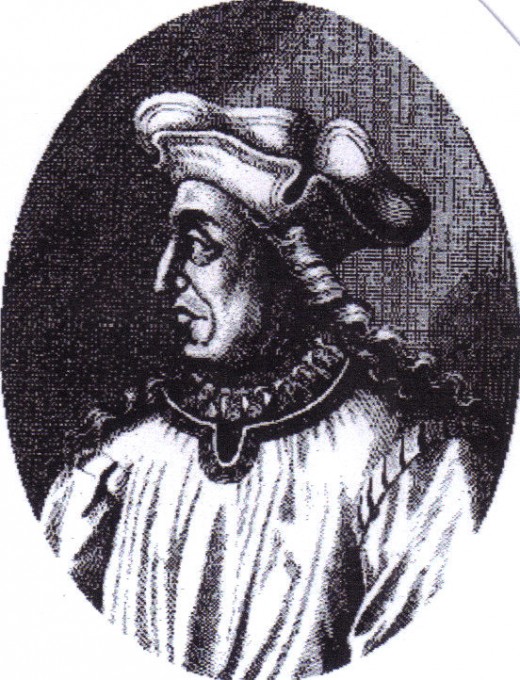L'Uomo Universale

Universal Man
L’Uomo Universale or the “Universal Person” is a term created by Leon Battista Alberti, a 15th century Florentine architect. A “Universal Person” was a man who developed and refined his abilities and knowledge continuously. Abilities included physical development, social accomplishments, and a deep understanding of the fine arts. Developing these areas required instruction and guidance which generated different theories regarding the qualities of the ideal man of the Renaissance. Three writers were known for their descriptions and were quite distinct from one another. The three writers were: Giovanni Pico della Mirandollo, Baldassare Castiglione, and Niccolo Machiavelli.
In “Oration on the Dignity of Man,” della Mirandollo wrote that man is God’s greatest creation. Man is of an indeterminate nature and is placed in the center of the universe. Mirandollo believed that men are born into the condition of being able to become whatever they choose. Mirandollo's theory is positive and inspirational to those with ambition, passion and a hunger for learning. Mirandollo would definitely give confidence to the gifted and stir the strong to overcome barriers.
Baldassare Castiglione wrote “The Book of the Courtier” and it is clearly a text for the well born. Castiglione speaks of good and evil and believes that man learns both by fear of shame and hope of praise. He is of the opinion that the primary mission of the courtier is to bear arms and be loyal to who he serves but is also aware the ideal man cannot be a soldier all of the time. Castiglione’s ideal would be clean and groomed but not embellished with any item that would make him appear to be effeminate. The ideal man for Castiglione would have powerful and versatile physical skills. Most importantly, this ideal man would be considered an equal by a prince. Castiglione’s ideal man would also take care to never to make any request to his prince that could be refused because a refusal to the ideal man from the prince would change the status of the ideal man forever.
A radically different theory on the development of the ideal man is presented in Niccolo Machiavelli’s “The Prince.” Machiavelli actually presents a strategy that can be put to use by the reader who would aspire to be “L’Uomo Universale.” Machiavelli openly discusses how to act depending on who you are with, acknowledging that people and circumstances are different in every situation. Machiavelli goes into detail regarding specific and actual occurrences and makes recommendations about how to deal with them. Machiavelli does not list virtues one must strive for, but how to select one virtue over another by judging and calculating the situation. He tells the reader that the human condition possesses both good and evil which is present in all men. Machiavelli explains that a person cannot be all things to all people and gives methods and situations advising the Renaissance man on choices. At first reading, Machiavelli seems manipulative and dishonest. After closer study and factoring in the fact that Europe was emerging from the dark ages and still reeling from the plague, a practical “how to” manual would have been essential for successful leadership and it is not surprising that Machiavelli’s “The Prince” is widely read and regarded today.
All three authors have their place. Each has particular value to a particular sort of “L’Uomo Universale. Pico della Mirandolla is the writer for the thinker. Mirandolla would motivate the aspiring artists, scientists and writers by telling men that their potential is limitless and they were born to do and go where ever their choices led them. Baldassare Castiglione was the teacher for those who chose to serve. Baldassare coached those closest to the princes and advised regarding maintaining their special places close to royalty. Macchiavelli wrote a guidebook on surviving the perils of being a prince and ideally helped the good princes survive longer and benefit the masses.



